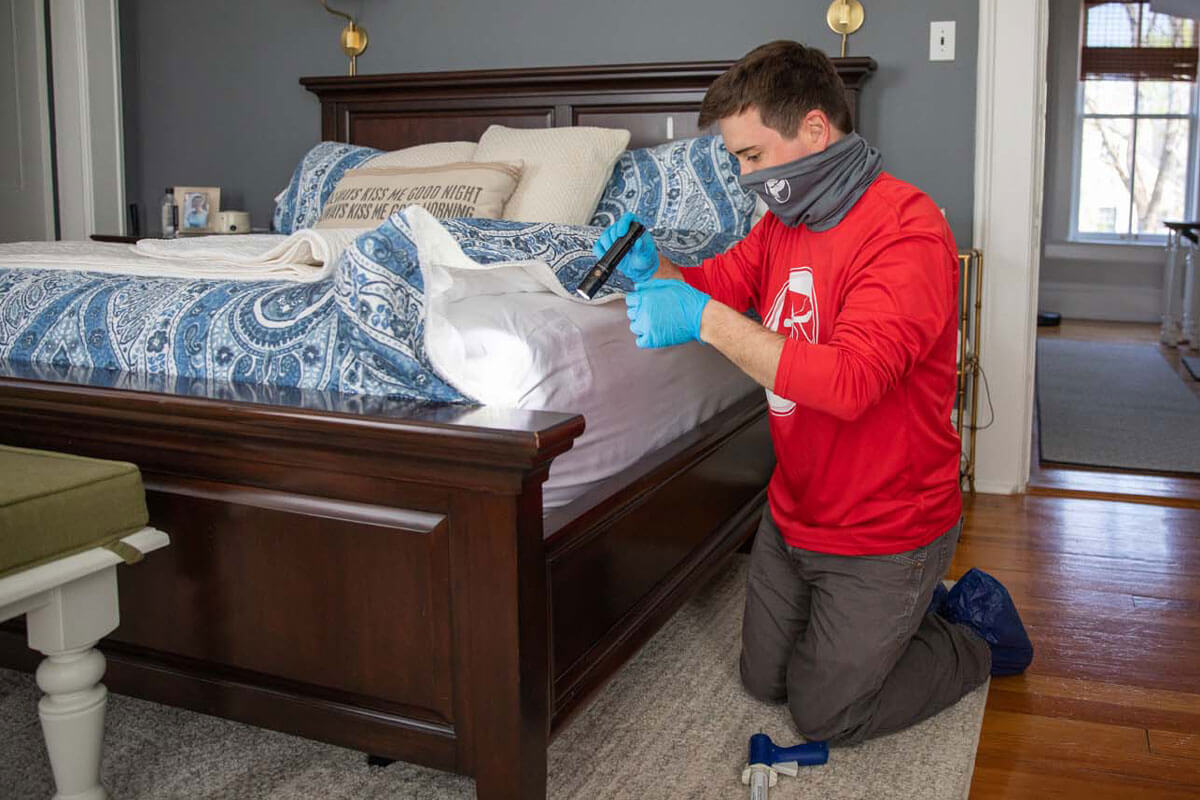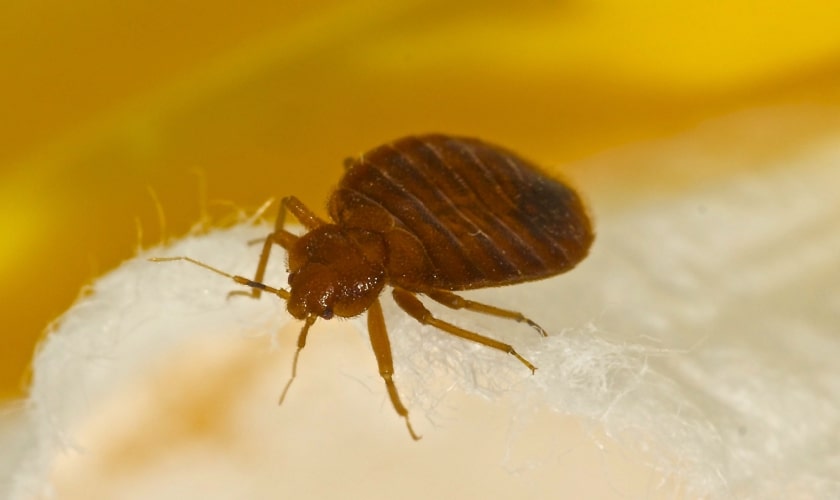Trusted Kings Pest Control Cincinnati OH: Specialist Services
Trusted Kings Pest Control Cincinnati OH: Specialist Services
Blog Article
Kinds Of Parasite Control: Which Approach Is Right for Your Invasion?
When encountered with a pest problem, the choice of an appropriate approach for parasite control is vital in effectively handling the scenario. By exploring the different types of insect control methods readily available, people can make educated choices customized to their unique circumstances, guaranteeing a more sustainable and effective outcome in pest eradication.
Chemical Bug Control
Chemical bug control entails the usage of artificial or normally obtained chemicals to handle and get rid of pest populaces effectively. This method is generally used in farming, forestry, and domestic setups to combat a large range of insects, including bugs, rodents, and weeds. Making use of chemical pesticides can provide quick and targeted options to pest problems, making it a prominent option for many people and organizations.
One of the vital advantages of chemical parasite control is its capability to quickly remove bugs, minimizing the danger of damages to crops, home, and human health. By utilizing particular chemicals that target particular parasites, this technique can efficiently regulate invasions while reducing damage to useful organisms and the environment when applied correctly.
Nonetheless, making use of chemical insect control additionally elevates problems about prospective adverse impacts on non-target types, water resources, and human health. It is vital to follow security guidelines, apply chemicals sensibly, and take into consideration alternative parasite control methods to minimize these dangers and make sure sustainable bug administration methods.
Biological Parasite Control
Organic pest control, additionally recognized as biocontrol, uses living organisms to reduce and manage insect populations normally. By utilizing the parasite's natural killers or pathogens, organic parasite control offers a lasting and ecologically pleasant service to pest management.

Mechanical Bug Control
Using physical and hands-on techniques to take care of insect populaces, mechanical parasite control uses a different approach that does not depend on using living organisms or synthetic chemicals. This method entails making use of barriers, traps, or various other tools to physically deter or get rid of bugs. By blocking bug entry points or establishing up traps to catch them, mechanical parasite control can efficiently lower infestations without presenting chemicals into the setting.
One typical instance of mechanical parasite control is the usage of mesh screens on doors and windows to avoid pests from entering buildings. This basic yet reliable approach acts as a physical barrier, keeping pests out while permitting correct air flow. In addition, gadgets like mousetraps, fly swatters, and ultrasonic repellents drop under the mechanical pest control classification.
While mechanical bug control methods can be labor-intensive and call for routine tracking and upkeep, they provide a sustainable and eco-friendly solution for taking care of insect infestations. By integrating various mechanical techniques, building owners can develop a thorough bug control approach that minimizes reliance on chemical pesticides.
Physical Insect Control

Some usual physical parasite control techniques click this consist of the use of obstacles such as displays or internet to protect against insect entrance, traps to catch and get rid of bugs, and hand-picking to physically eliminate parasites from plants or structures. Additionally, methods like warm treatments can be utilized to control pests like bed pests by elevating the temperature level to levels that are dangerous to the bugs.
Physical insect control is especially beneficial in integrated pest administration (IPM) methods, where several insect control approaches are incorporated for efficient bug management while lessening the use of chemicals. By making use of physical insect control methods, individuals can efficiently resolve bug infestations with marginal environmental effect.
Integrated Pest Management
When applying physical insect control approaches as part of insect administration strategies, Integrated Pest Management (IPM) emerges as an extensive strategy that leverages numerous important source methods to successfully regulate pest populations. IPM concentrates on long-lasting avoidance of insects via a mix of biological, cultural, physical, and chemical tools tailored to specific pest concerns. By incorporating several control strategies, IPM aims to minimize the risks related to parasites while likewise reducing dependence on chemical options.
One secret aspect of IPM is the emphasis on monitoring and analyzing pest populations to determine the most ideal control techniques. This aggressive approach permits early treatment and targeted approaches, resulting in much more reliable parasite monitoring. Additionally, IPM promotes eco-friendly methods by prioritizing non-chemical control methods and only using chemicals as a last option.
Verdict

By using the pest's all-natural killers or pathogens, organic insect control offers a sustainable and environmentally pleasant solution to pest administration. - Kings cincinnati pest control
Making use of manual and physical methods to manage parasite populaces, mechanical pest control provides a different strategy that does not rely on the usage of living organisms or artificial chemicals.An effective method to managing pest populations without depending on chemical or biological approaches involves the usage of physical insect control methods.When executing physical parasite control methods as part of parasite management approaches, Integrated Parasite Management (IPM) arises as a thorough approach that leverages different techniques to properly manage pest populations. Chemical pest control entails the use of pesticides, biological parasite control uses natural killers, mechanical parasite control includes physical barriers, physical parasite control includes trapping or getting rid of bugs, and incorporated pest administration incorporates numerous methods for an alternative strategy to pest control.
Report this page